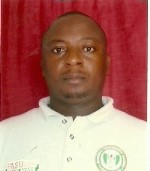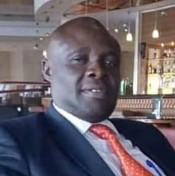in Offshore Facility Maintenance Projects
in the Oil and Gas Industry
FEATURED PAPER
By Chimezie Henry Achaka, Emmanuel Chinenye Ubani,
Benedict Amade and Kevin Aku Okorocha
Department of Project Management Technology
Federal University of Technology
Owerri, Nigeria
Abstract
This study evaluates the obstacles to implementing efficient lean systems in offshore facility maintenance projects in Nigeria’s oil and gas industry. The study utilised descriptive and survey research design methods, along with purposive and convenience sampling methodology, to select a sample size from a population of 122 practitioners employed in eleven (11) oil servicing enterprises in the Niger Delta region of South-South Nigeria. The data collection and survey instrument utilised a comprehensive range of methods, including a well-structured questionnaire, semi-structured/focused group discussions, personal observations, and site visits. These approaches were employed to gather information from a diverse range of sources, including respondents, oil and gas servicing firms, and projects. The acquired data was analysed using Exploratory Factor Analysis, IBM SPSS Statistics version 25.0, and the Severity Index. The study categorised 31 obstacles to the implementation of efficient systems into eleven decision matrix variables, with the most important factor being a shortage of technical expertise, training, and familiarity with efficient principles. Other significant obstacles include a lack of dedicated leadership, lengthy decision-making procedures caused by a complex organisational structure, government bureaucracy, and resistance from employees towards change. The report recommends that the Nigerian oil and gas industry focus on implementing lean practices in offshore facility maintenance projects. It suggests using lean tools and involving the government to increase the chances of success.
Keywords: Facility, Factor analysis, Maintenance, Oil, Gas, Projects.
- Introduction
Oil and gas facilities are units that serve as access platforms and support bases for the operation and production of oil and gas products. Adverse environmental conditions, wear, and strain connected with manufacturing and operating operations produce degeneration and loss of production capacity in the facility (Achaka, 2024). Oil and gas facility maintenance projects (OGFMP) primarily concentrate on activities and operations that aim to maintain facilities at optimal performance, potentially involving the upgrading of existing facilities to address new production challenges. Maintenance presents the same challenges as production and building. Duran, Capaldo, and Acevedo (2017) believe that maintenance is an activity that contributes to improving the availability, efficiency, and productivity of each piece of equipment. Oil servicing companies (OSC) contract most OGFMP at a fixed value, deploy supplies, consumables, manpower, and equipment in various combinations according to the project scope, and aim to meet the contractual obligation (Achaka, Amade, Okorocha, & Ubani, 2024). Observations of several Oil Service Companies (OSC) over time have revealed that most of them fail to provide the OGFMP within the specified time frame and require numerous reworks, resulting in spending more than their budget. Despite using planning and scheduling techniques, they do not meet the projected delivery time, resulting in higher costs and lower profit margins. This problem highlights the need for modern tools and superior management skills or philosophy to address the shortcomings associated with traditional project management planning and scheduling, as stated by Wenchi, Wang, Wang, and Chong (2015). The oil and gas industry has been focusing on the lean thinking philosophy to enhance the efficiency of the maintenance project process, starting from the planning stage.
We will apply an exploratory study approach based on the lean philosophy to an OGFMP-based survey of oil and gas experts to build a lean framework. Lean goes beyond project planning and focusses on the removal of waste, non-value-adding activities, and processes that consume resources and take up space in order to smooth out the flow and reallocate those resources acquired from waste elimination. Uzochukwu and Ossai (2016) assert that the Toyota Production System (TPS) primarily inspired the lean system, a management philosophy that emerged in the 1990s. The Toyota Production System (TPS) is widely recognized for its emphasis on minimizing the original Toyota seven wastes, namely transport, inventory, movement, waiting, overprocessing, overproduction, and defects. Womack and Jones (2003), as well as Womack, Jones and Roos (1991), characterised Lean theory as a real-world method for removing waste at the lowest possible cost and highest value.
Many organisations have recognised the critical necessity to implement Lean in order to remain competitive and survive the recent recession and global competition (Achaka et al., 2024; Tourki, 2010). According to Dehdasht and Zin (2018) and Aziz and Hafez (2013), the construction sector has long been considered unsafe, fragmented, wasteful, inefficient, and ineffectual. In this regard, construction, as opposed to manufacturing and maintenance, is heavily influenced by a distinct set of relatively separate factors, including industry variables, onsite conditions, fragmentation, the inherent uniqueness of projects, exposure to weather, and skilled labour shortages, among others. The OSC performs OGFMP, which includes but is not limited to: designs, procurement, fabrication, construction, installation, asset inspections, and maintenance. According to Fapohunda (2014), resources are not only growing more expensive on a daily basis, but they are also becoming increasingly rare; prospective clients and developers require value for money invested; and contractors’ reputations and profits are critical. Uzochukwu and Ossai (2016) reiterated the lean strategy as one initiative that many businesses in the United States have been attempting to implement to remain competitive in an increasingly intense global market.
More…
To read entire paper, click here
How to cite this paper: Achaka, C. H., Ubani, E. C., Amade, B., Okorocha, K. A. (2024). An Evaluation of Barriers of Lean Implementation in Offshore Facility Maintenance Projects in the Oil and Gas Industry; PM World Journal, Vol. XIII, Issue X, October/November. Available online at https://pmworldlibrary.net/wp-content/uploads/2024/11/pmwj146-OctNov2024-Achaka-Ubani-Amadi-Okorocha-Evaluation-of-Barriers-of-Lean-Implementation.pdf
About the Authors

Chimezie Henry Achaka
Owerri, Nigeria
![]()
Engr. Chimezie Henry Achaka, M.Sc is a project management practitioner and practitioner with academic affiliations. He possesses an M.Sc. degree in Project Management Technology and a Registered Mechanical Engineer with over (18) years of work experience in the Oil & Gas Industry. He is an AMPP Senior Certified Coatings Inspector, an IRCA Certified Lead Auditor, and an AWS Certified Welding Inspector. He has worked on several International Oil companies’ projects; Onshore/Offshore facilities, Rigs/FPSO/Drill Ships at various Technical/Management capacities, providing startup construction & contracts management, maintenance, modification/facility upgrade services. His professional expertise includes; Projects/Contracts Management, Construction, QA/QC, QMS Auditing, NDT & Destructive Welding & Coatings Inspections, Supervision of Technicians on Fabrication & Protective Coatings, HSE Inspection of field operations, Pipeline reticulation project management. His mission is to add value to any organization by making a good impact and his ideology is to guarantee good performance on the job, with a vision to further develop competencies in his self and career through learning. He can be contacted at achakach@yahoo.com, henryachaka.20164997168@futo.edu.ng.

Emmanuel Chinenye Ubani, PhD
Federal University of Technology
Owerri, Nigeria
![]()
Emmanuel Chinenye Ubani is a Professor in the Department of Project Management Technology, Federal University of Technology, Owerri, Nigeria. He holds a B.Sc, M.Eng and Ph.D in Industrial Engineering and Project Management. His areas of research interest include; Engineering Project Management, Materials Requirement Planning. He is member of the Nigerian Society of Engineers (NSE) and Fellow of the Institute of Industrial Administration. Professor Ubani can be reached at drecubani@yahoo.com.

Benedict Amade, PhD
Federal University of Technology
Owerri, Nigeria
![]()
Benedict Amade is a Chartered Project Manager by Profession and a Probationer (Member) of Nigerian Institute of Quantity Surveyors (NIQS). He read and obtained a PhD (Doctor of Philosophy) Degree in Project Management Technology from the Federal University of Technology, Owerri, Nigeria. He is a member of the Project Management Institute (PMI) U.S.A. and presently a Senior Lecturer in the Department of Project Management Technology of the Federal University of Technology, Owerri, Nigeria where he has been lecturing for the past 15 years. His areas of research interest include construction project management, computer-based project management, construction supply chain management and information technology on construction projects. He has authored over 50 scientific publications in international refereed journals indexed in Scopus, Web of Science, Scimago, etc. He has presented quality papers at international conferences, both home and abroad. He is actively involved in other consultancy works. He can be reached at https://orcid.org/0000-0003-3368-5432; benedictamade@yahoo.com; benedictamade@futo.edu.ng; benedictamade2@gmail.com.

Kevin Aku Okorocha, PhD
Federal University of Technology
Owerri, Nigeria
![]()
Kevin Aku Okorocha is a Professor in the Department of Project Management Technology, Federal University of Technology, Owerri, Nigeria. He holds a B.Sc, Estate Management, M.Sc Project Management Technology, MBA in Banking and Finance, M.Sc Economics and Ph.D in Project Management Technology. His areas of research interest include; Project Financing and Investment, Industrial Economics. He is an Associate member of the Nigerian Institute of Estate Surveyors and Valuers, and a Fellow of the Chartered Institute of Project Managers of Nigeria. Professor Okorocha is currently the Dean of the School of Logistics and Innovation Technology, Federal University of Technology, Owerri, Nigeria.
He can be reached at okorocha_kev@yahoo.com.









